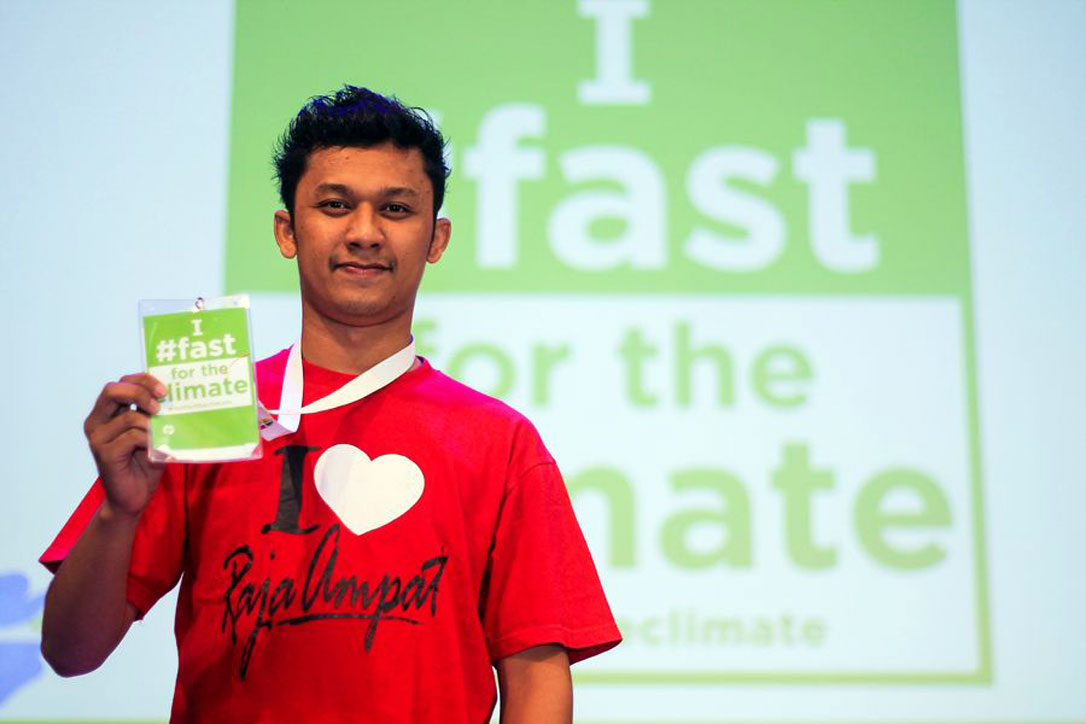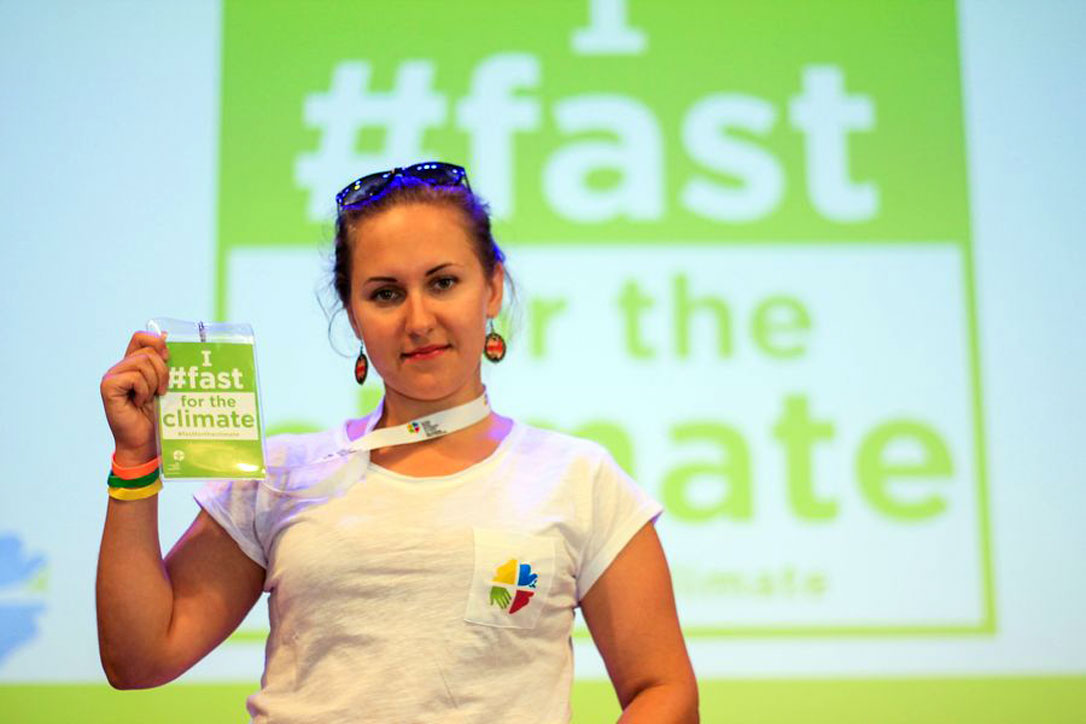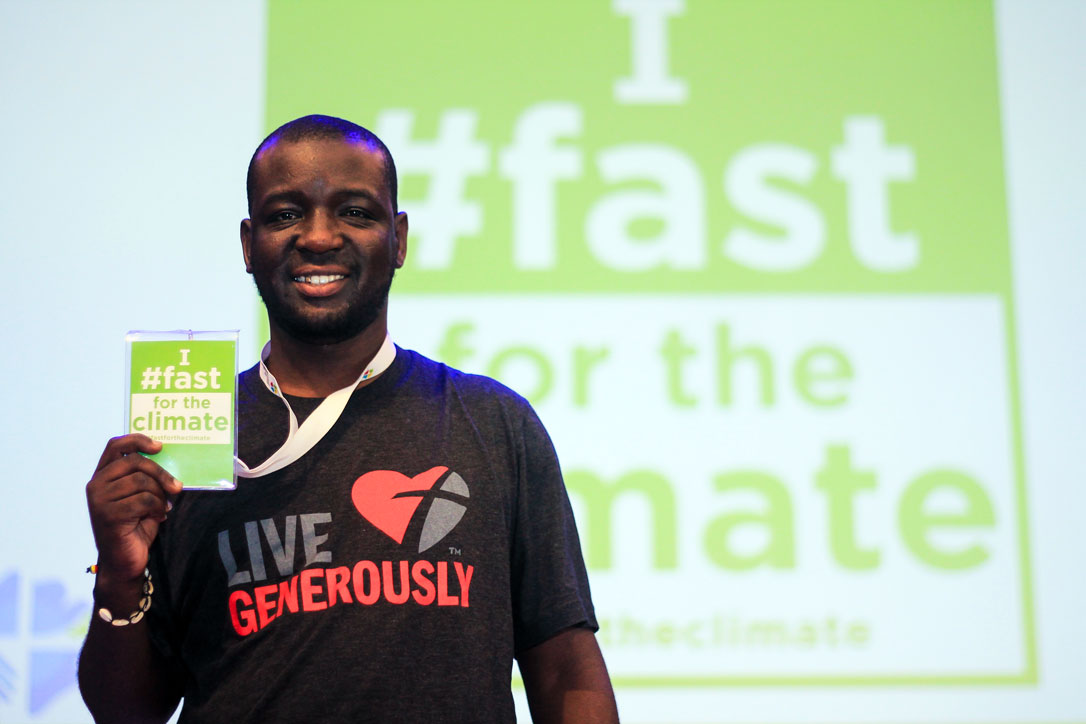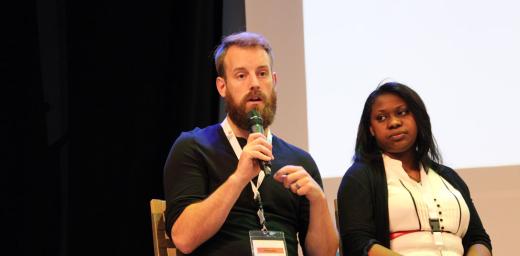Heading home inspired to act for climate justice
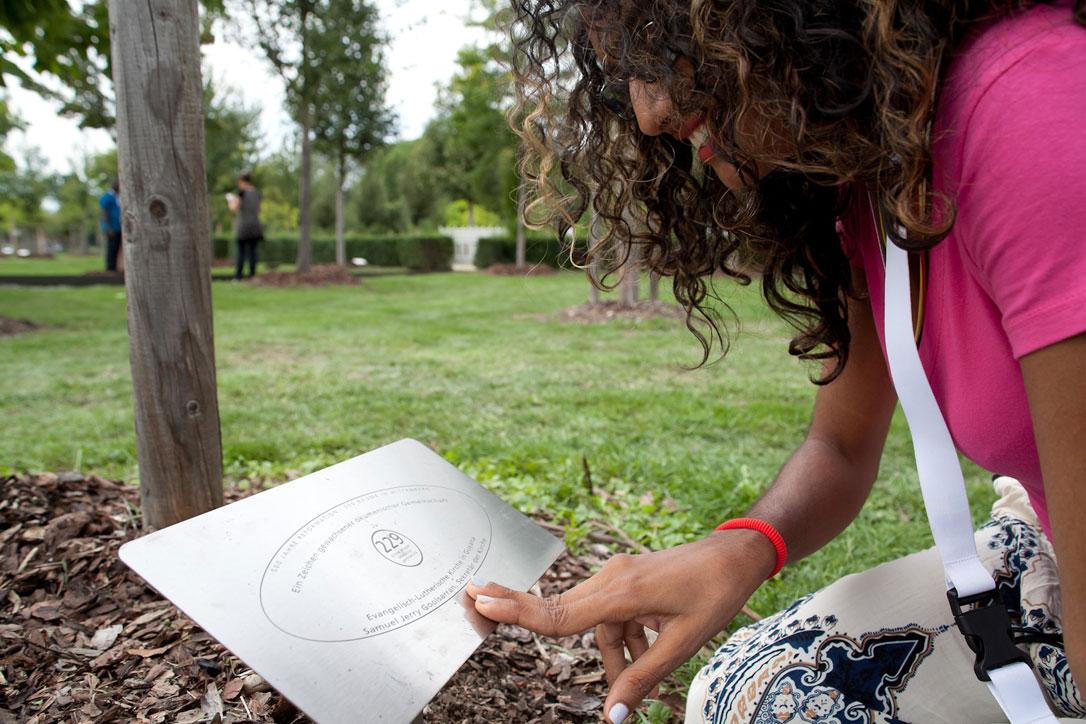
A young Workshop Wittenberg participant looks at her churchâs tree in the Luthergarten in Wittenberg. Young Lutherans are getting ready to leave the workshop keen to put climate change programs in place. Photo: LWF/Marko Schoeneberg
WITTENBERG, Germany/GENEVA, 2 September 2015 – Many of the LWF member-church representatives at the ongoing young reformers’ workshop in Wittenberg will be going back home with greater awareness and inspiration for climate justice advocacy.
During a 1 September Fast for the Climate prayer service in the Wittenberg Catholic Church, the young reformers reflected again on climate change, a major topic of the 23 August to 4 September international workshop.
Jeff Buhse thanked those who had responded to LWF’s invitation to join the once-a-month action of fasting in solidarity with the poor and marginalized, who are the most adversely affected by climate change.
“What is most important in fasting is to use this time for some reflection and self-thought; to really think about what you can do differently in your life for the benefit of others,” said Buhse, a member of the LWF working group on climate justice.
Here’s what inspired young reformers from Canada, Indonesia, Russia and South Africa to join the Fast for the Climate campaign, as they count down to the December United Nations climate change conference in Paris, France.
Photos: LWF/Johanan C. Valeriano
Follow events live at Workshop Wittenberg



